'We were laughing and talking with our WW1 enemies'
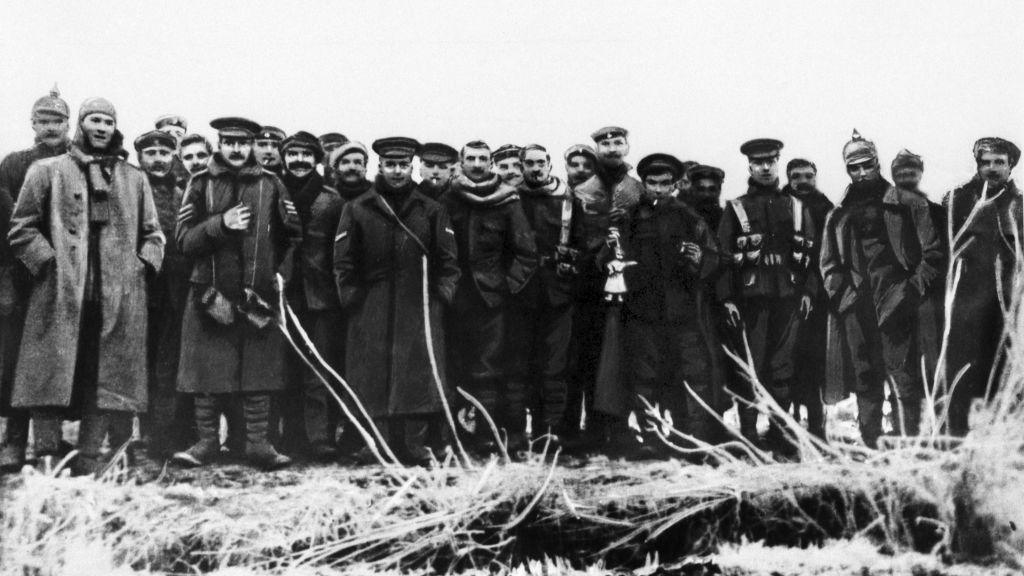
The Christmas Truce has entered into the mythology of World War One
- Published
"Here we were laughing and talking to men whom only a few hours earlier we were trying to kill."
This startling passage features in a collection of World War One soldiers' stories that shed light on the famous Christmas Truce of 1914.
Maude Alice Lineham was working as a volunteer nurse in Derby and Leicester during the 1914-18 conflict when she encouraged injured servicemen to write about their experiences.
The album she collected included poems, thoughts, memories, drawings from about 90 people and a piece of white flag, and will soon go under the hammer.
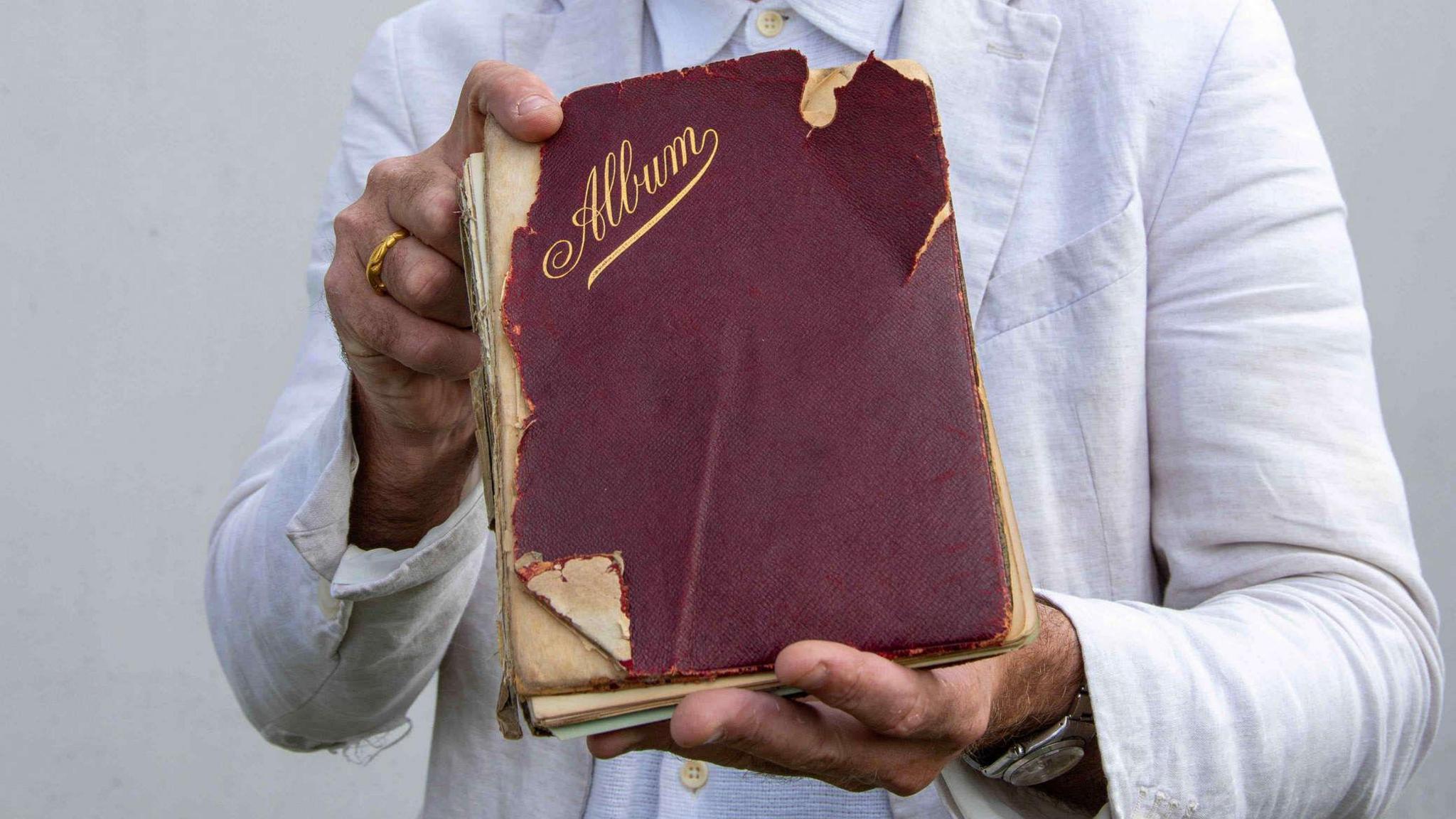
The album contains entries from about 90 people, including poems and drawings
A teacher before the war, Miss Lineham worked at Derby's Spondon House Hospital, Derbyshire Royal Infirmary (DRI) and Leicester Royal Infirmary.
Her album includes the eyewitness account of Corporal John J Ferguson of Second Seaforth Highlanders, who at Christmas 1914 was in a wet trench in Messines, Belgium.
Noticing a lull in shooting, Corporal Ferguson wrote, soldiers began to sing carols, bringing applause from the opposing forces.
This turned into shouted greetings, then invitations to meet.
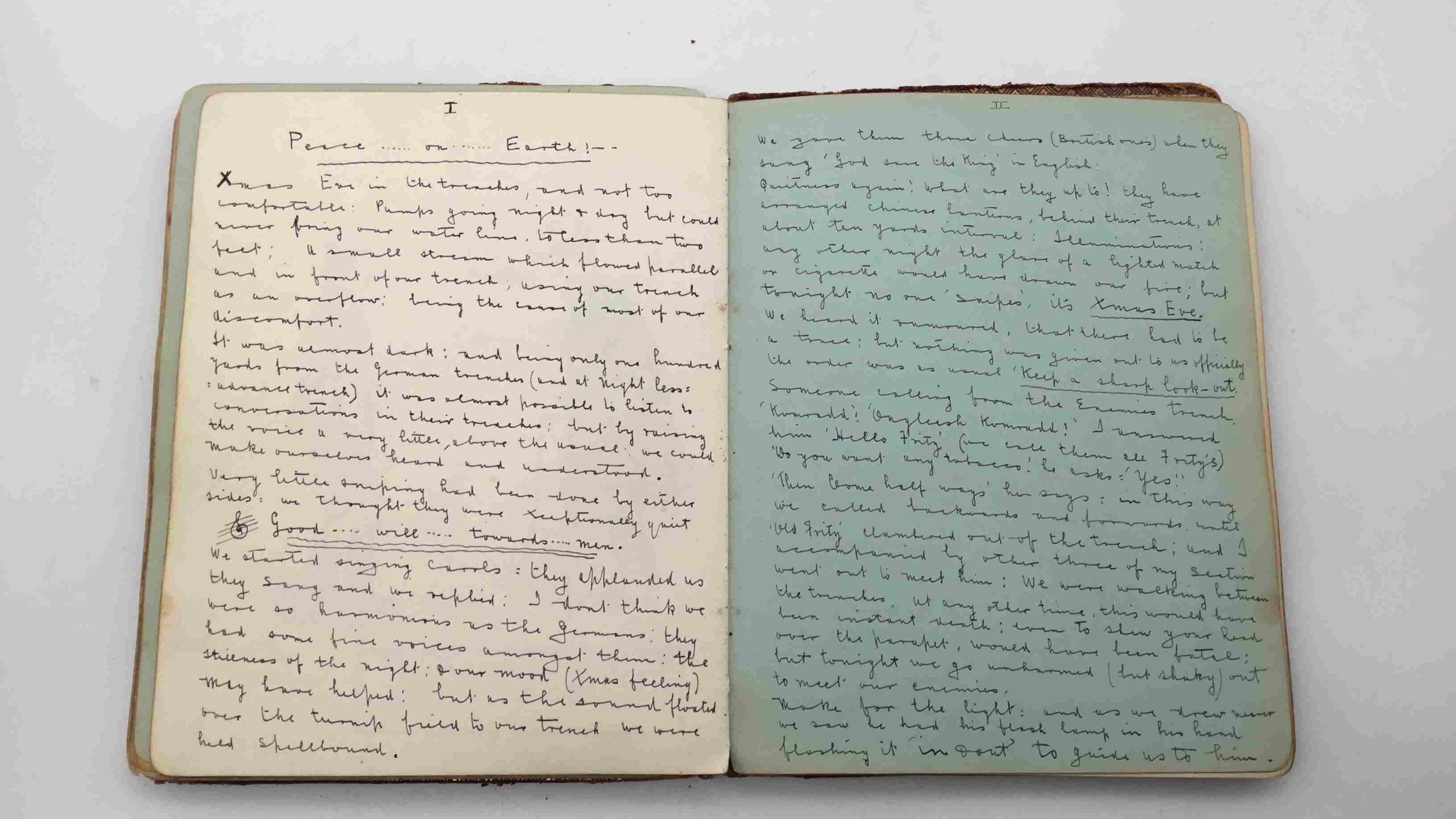
The detailed account of the Christmas truce takes up eight pages
"Make for the light and as we drew near we saw he had a flash lamp in his hand," he said.
"We shook hands, wished each other a Merry Xmas and were soon talking like old pals, standing in front of their wire entanglements and surrounded by Germans.
"What a sight it was, little groups of Germans and British extending almost the length of our front.
"Out of the darkness came laughter and talking, lighted cigarettes and the flash of matches.
"Germans and Seventh lighting each other's cigarettes and exchanging souvenirs... here we were laughing and talking to men whom only a few hours earlier we were trying to kill."
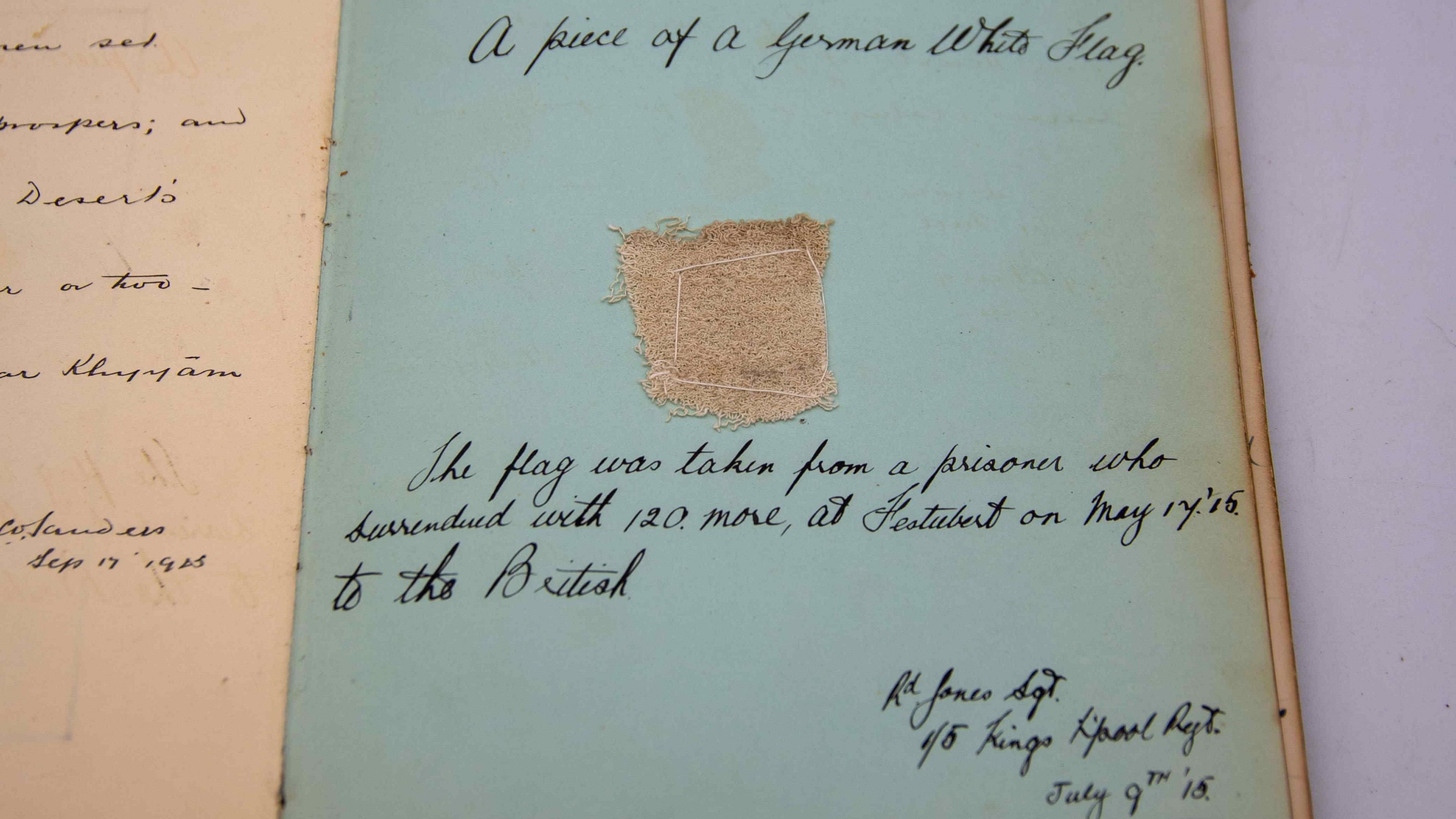
A fragment of white flag from an engagement in the second year of the war
One page of the album features a fragment of a white German surrender flag.
Sgt Jones of the 1/5 Kings Liverpool Regiment wrote: "A piece of a German white flag... the flag was taken from a prisoner who surrendered with 120 more at Festubert [France] on May 17, 1915 to the British."
The album also underlines that lives were lost away from the trenches.
On 17 November 1915, the ship Anglia, carrying 390 injured soldiers from Calais to Dover, struck a mine. It sank in 15 minutes and 134 men died.
An account by C Gordon, 9th King's Royal Rifle Corps, describes the chaos.
"All the life boats were full of men, the men from below.
"No-one seemed to give any instructions. No-one seemed to know what to do.
"The ship's crew were not to be seen anywhere. The men in the lifeboats didn't know how to lower the boats," he said.
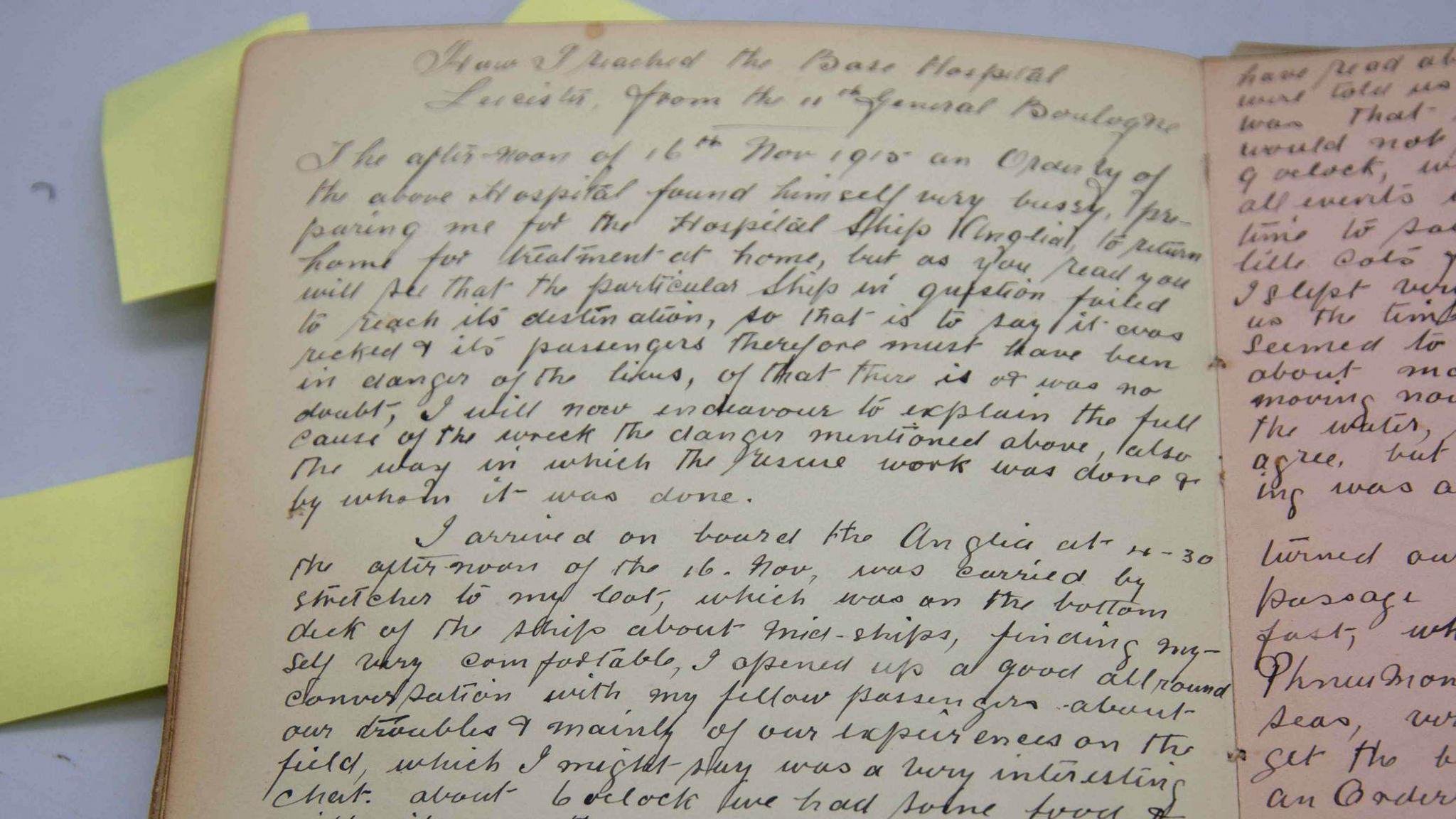
One account details the escape of an injured soldier from a sinking ship
Not all the entries are grim reading - with one J M Hockney writing on 30 June 1917: "In memory of happy days, many chorus's etc with Miss V.A.D. Lineham at the piano surrounded by her noisy boys."
Miss Lineham died in1965 without close family and it is believed the album was found during a professional house clearance.
The current owner, who is remaining anonymous, said: "Maude's album is particularly delightful as it is so complete and she showed such diligence in making sure the young men in her charge recorded something, either by the written word or a beautiful picture.
"I was so impressed by how articulate and talented they all were."
The album is due to go under the hammer at Hansons Auctioneers in Derbyshire on 13 November.
Get in touch
Tell us which stories we should cover in Derby
Follow BBC Derby on Facebook, external, on X, external, or on Instagram, external. Send your story ideas to eastmidsnews@bbc.co.uk, external or via WhatsApp, external on 0808 100 2210.